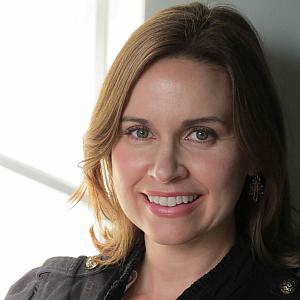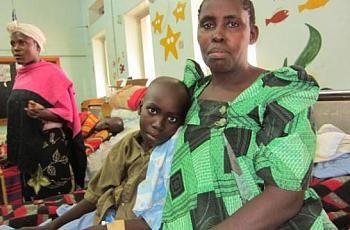
Jill Braden Balderas
Contributing Editor, Center for Health Journalism Digital

Contributing Editor, Center for Health Journalism Digital
Jill Braden Balderas is a multimedia journalist focusing on medicine and health policy. She has covered these issues on six continents and across all mediums, including in The Washington Post, The Globe and Mail, PRI’s “The World,” North Carolina Health News, Kaiser Health News and numerous international TV networks. In 2011, Balderas was awarded a fellowship by the International Reporting Project at Johns Hopkins University to cover malaria in Uganda. As managing editor at the Kaiser Family Foundation in Washington, D.C., Balderas oversaw several news and information publications focusing on domestic and global health policy issues from 2003 to 2011.
Prior to Kaiser, Balderas served as a correspondent and senior producer at Reuters Television. She covered everything from cloning to the U.S. anthrax attacks and won a Unity Award for her television broadcast coverage of diabetes on the Pine Ridge Indian Reservation in South Dakota. Before joining Reuters, she freelanced for Health24News and various national and international radio stations covering the 2000 U.S. elections. During this time, she wrote a special series on health in then-war-torn Sudan as well as HIV/AIDS in Kenya.
Balderas was also a reporter and editor for National Journal’s The Hotline and Politics Daily publications and a political analyst for MSNBC. Balderas has undergraduate degrees in Spanish and psychology from The University of Georgia and a master of public health in epidemiology from The George Washington University.

The most decorated U.S. track and field Olympian in history is using her star power to highlight the glaring disparities facing Black mothers.

With several GOP presidential candidates supporting parental choice for childhood vaccines, CNN would have done better by asking the candidates how they propose balancing individual choice with public health, rather than allowing Donald Trump to spread more misinformation about autism and vaccines.

Looking for fresh story ideas? We hope these accounts of how reporters across the country got the stories, sources and subjects give you fodder for covering your own communities in a new way.

Two California gun buyback programs try crowdsourcing to fund their operations. Does getting firearms off the street in this manner really reduce gun violence?

Can stamps encourage any type of behavior change youth? I’d say it’s as much on their radar screens as having to get up off the sofa to change the TV channel, like I did in the age before remote controls.

As the Health Insurance Marketplace launched Tuesday, the news media focused on computer glitches and long wait times. But there’s one population that didn’t have the opportunity to join the fray – those wanting to sign up in Spanish.

Our all-star panel, including Sarah Kliff of the Washington Post and Peggy Girshman of Kaiser Health News, discuss via webcast key issues journalists need to know about covering the Affordable Care Act implementation.

Dr. Jeffrey Brenner, who works in one of the poorest, most violent places in America, has developed a system that's tackling two of health care's most intrinsic problems: cost and quality of care. Watch a webcast where he discusses his model for care.

When experienced health journalist Joanne Silberner realized she had a "huge" misconception about cancer in the developing world, she reported from three countries to shed light on the subject for readers and listeners.

As the deadline for the Affordable Care Act’s implementation draws nearer, the largest state in the union and often a bellwether, has revealed its plans and rates for a key element of health reform – the Health Insurance Marketplace.